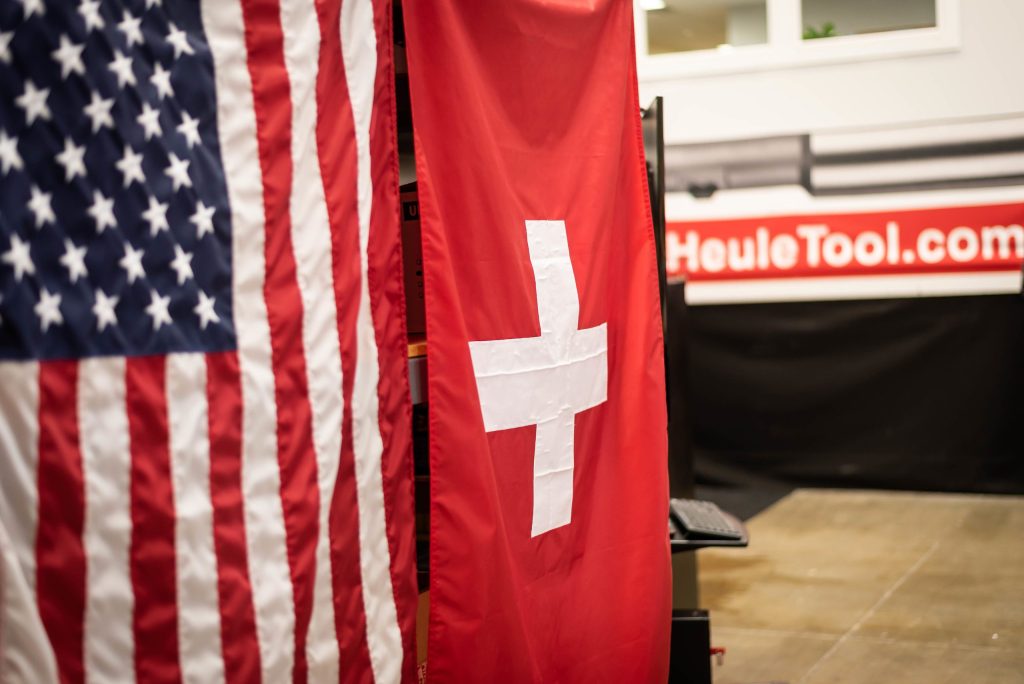Heule Tool Corp. recognized for innovation
Heule Tool Corp. recognized for innovation
(Cincinnati, OH) – HEULE Precision Tool announces that their BSF tooling has been selected as a finalist for the Swiss-American Business Council (SABC) Innovation Award for 2018.

(Cincinnati, OH) – HEULE Precision Tool announces that their BSF tooling has been selected as a finalist for the Swiss-American Business Council (SABC) Innovation Award for 2018. The automated Back Spot Facing tool was chosen for its proven ability to reduce production costs while improving product quality in high production manufacturing environments. The tool is manufactured at the HEULE factory in Switzerland and distributed to North American customers through HEULE Tool Corporation, their US subsidiary. LNS and their e-connect Ethernet system which allows communication between CNC machines and bar loaders, was also chosen as a finalist in the competition which was won by Big Kaiser for their EWE Fine Boring Heads.
"Congratulations to LNS and especially Big Kaiser. It is truly an honor to be mentioned with these innovative companies," said HEULE Tool Corporation President Gary Brown.
Members of the SABC were invited to submit an entry for this award of any innovative product or service that has been launched within the last 3 years and has strengthened the US-Swiss business relationship. The SABC Innovates Initiative Committee reviewed and nominated entrants for receipt of the award and it was announced at the SABC Christmas Dinner on Dec.6.
The judging committee looked at the following criteria:
• The innovation was launched by an organization based out of the Midwest, that is Swiss or US in close collaboration with a Swiss organization.
• Did the product or service meet an unmet need?
• How unique is the product or service?
• What new value has been created for the end user?
• What financial evidence or market acceptance information?
The BSF tool, ideal for counterbores up to 2.3 x diameter and ranging in size from 6.5mm to 20.5mm (0.256" to 0.807"), is sold standard-stock, shipped the next day from the Loveland, OH warehouse. This unique tooling works without an anti-rotation device, change of spindle direction, or any machine adaptations, allowing components to be spot faced in the same direction as the bore is drilled. This saves the time and cost of turning the work piece, while allowing the spot-facing of difficult to reach areas like yoke forks, screw-head countersinks, and more. The blade expands using centrifugal force when activating the spindle, and retracts from coolant pressure, which moves a piston to depress a pin which retracts the closed blade into the housing. A simple swing mechanism combined with the internal coolant pressure system yields optimal cutting performance, resulting in consistent spotfacing and fewer scrapped parts.
The tool works both vertically and horizontally, with replaceable carbide-coated blades for extended tool life. They are ideal for gear housings, yokes, engine casings, and other parts in a wide range of materials.





